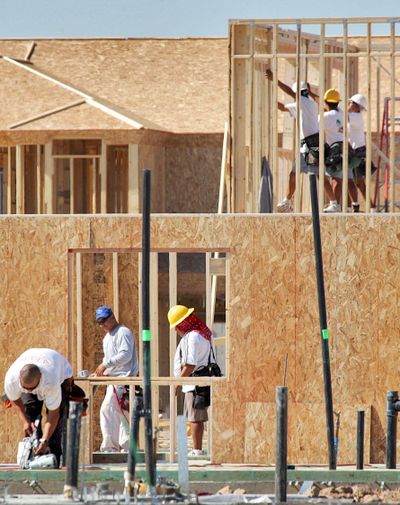Sue Lani Madsen: Underground economy discussion brings out the hypocrites on both sides

It’s a great conversation nonstarter for Labor Day, but a good way to begin an argument.
Mention how the complex web of labor regulations is driving the underground economy and you’ll be accused of wanting a return to sweatshops and child labor. Explain how President Franklin Roosevelt felt about public sector unions (he was against them) and clearly you support18-hour workdays and unsafe working conditions.
If you’re at a politically diverse picnic this weekend, brace yourself.
A 2014 news release from Washington House Democrats points out how “those who swindle the system not only put you at risk, they also pilfer profits from good businesses. Plus, the underground economy cuts into the state’s revenue for education, public safety, transportation, environmental protection, and other basic public services.”
All of which is true. But point out to a Democrat how promoting the industrious Mexican immigrant down the street selling old country tamales out of her home kitchen is swindling the system, violating public health and safety regulations, and unfairly competing with legitimate businesses and somehow that’s different.
It isn’t – it’s a classic example of the underground economy. And if you’re a Republican, somebody will point out how citing regulations as a reason to shut down the operation is racist, or at the very least hypocritical coming from the side that consistently complains about regulatory burdens on small business.
No matter how hot the weather, the temperature at the Labor Day picnic will be decidedly frosty by the time dessert comes out.
There used to be one economy, with no or limited regulation. There were problems, serious problems. The 19th- and 20th-century labor union movement accomplished much good in reshaping expectations about time and working conditions. And now regulations are the source of new problems.
For every regulation, there are those who will ignore it, work around it or be ignorant of it. That’s just a fact, not an argument for no regulation at all. It should mean we share an interest in sensible regulation, a lighter touch that lets us enjoy tasty tamales while not worrying about hiring the neighbor to paint the garage.
While some economic activity goes underground to avoid paying income taxes, other activity is driven underground by onerous regulation. It’s more than simple neighborhood transactions. Economists argue over the magnitude of what used to be called the black market, estimating the value as 7 to 12 percent of total gross domestic product. Economists argue about everything, but it’s obviously difficult to measure what’s deliberately being hidden.
For a microbusiness to add its first formal employee requires wading through more than 54,000 regulations at the Departments of Revenue, Labor & Industries, Employment Security and Social & Health Services. And that’s just the state level. It’s easy to understand the advice of a neighbor who said that these days, hiring a new hand takes as much time as doing the work yourself.
Think about how long it would take to read 54,000 regulations. Assume an average of 5 minutes reading time per regulation, 12 regulations per hour for 8 hours a day, 40 hour weeks with no vacation or sick time. If you start the day after Labor Day 2018, you’ll still be reading at Christmas in December 2020. And by then the rules will have changed. The temptation to hire labor under the table or keep the whole operation underground faces every small entrepreneur. It’s amazing the underground economy isn’t larger, and a testament to Americans’ commitment to the rule of law.
Washington has a website to report unlicensed underground businesses. The primary target of legislation has been the construction industry, pushed by construction trade unions. In legislative debates, those who believe people have a right to do what they want with their own money, time and property push for fewer regulatory restrictions. The pro-labor side pushes for the greatest protection for vulnerable consumers and workers.
And suddenly anti-regulation becomes right, pro-labor is left. Instead of arguing over who is the biggest hypocrite, back away to common ground. It’s about finding the sweet spot between protection and freedom, rights and responsibility. And that ongoing debate is no picnic.